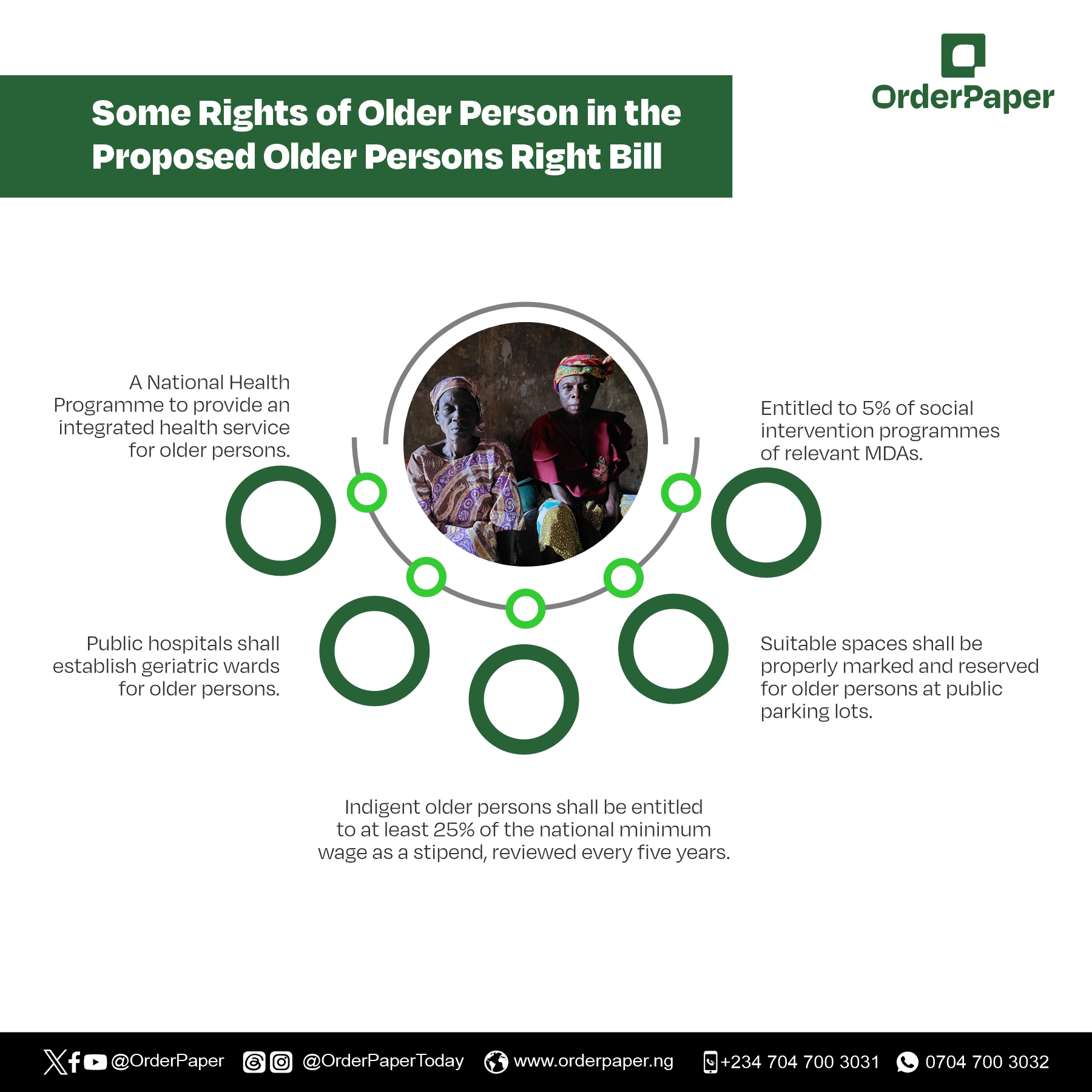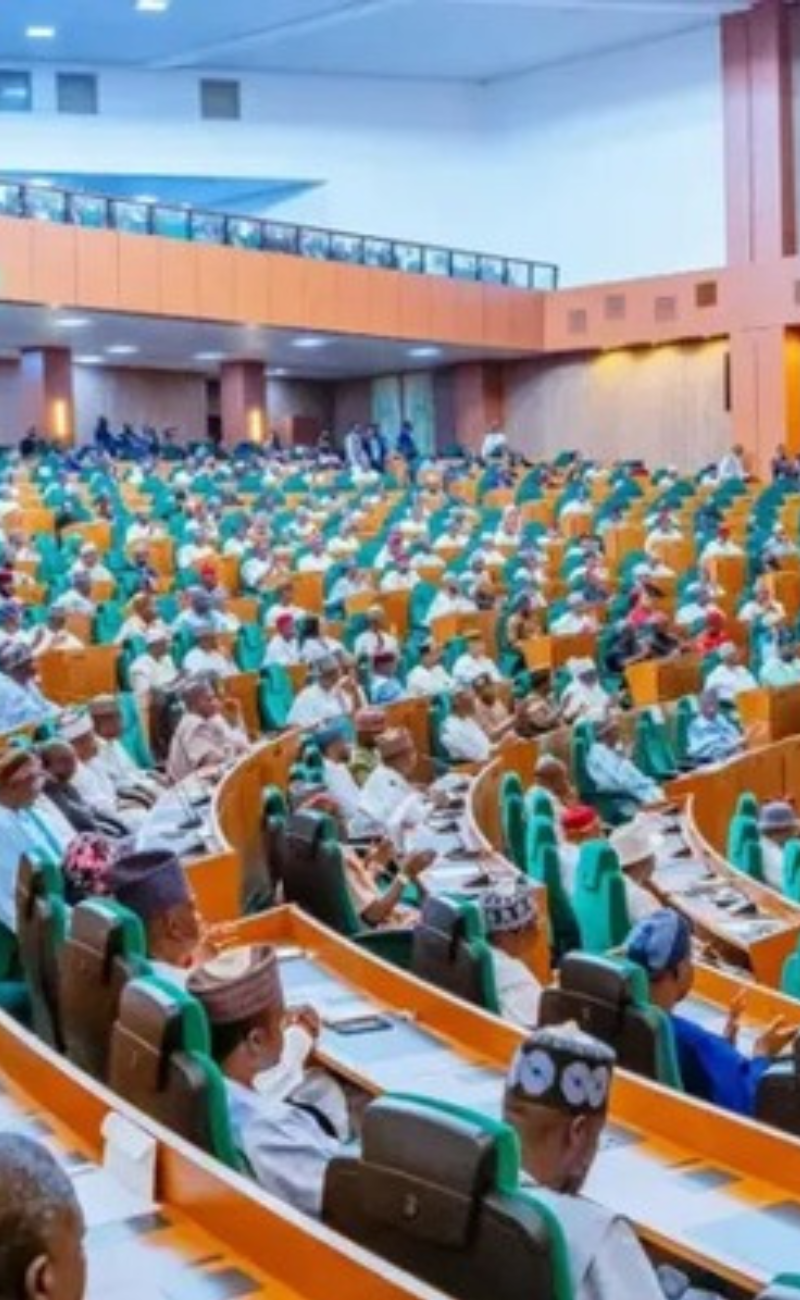In this episode of the Gender Equality and Social Inclusion (GESI) Tracker, we consider a bill on the importance of safeguarding the rights of the older persons and ensuring their full inclusion in the benefits and opportunities of society.
![]()
The Older Persons Rights Bill, 2025, sponsored by Rep. Tochukwu Okere (LP, Imo) and Rep. Olubodun Festus Olugbenga (Oyo) has been presented for its first reading in the House of Representatives.
It seeks to safeguard the rights and welfare of older persons in Nigeria, ensuring they receive adequate protection, care, and social support.
The elderly population in Nigeria is experiencing significant growth, with individuals aged 65 and above accounting for 3.1 percent of the total population, amounting to approximately 5.9 million people
Viewing this bill from a GESI lens, it may be critical to addressing the vulnerabilities of senior citizens, particularly older women and marginalized elderly groups, who often face higher risks of poverty, health challenges, and social exclusion.
The bill may be an opportunity to establish age-responsive policies, strengthen social security systems, and promote equitable access to healthcare, economic support, and protection from abuse and discrimination.
Key Provisions of the Bill
The Older Persons Right Bill introduces significant measures aimed at protecting and enhancing the quality of life for older individuals in Nigeria. It encompasses several crucial areas including healthcare, economic benefits, housing, and social protection.
Healthcare Provisions
One of the primary focus of the bill is healthcare. It mandates the National Health Insurance Scheme (NHIS) to provide coverage for all indigent older persons and develop specific insurance products tailored for the elderly, ensuring sustainable funding options
Furthermore, older persons are entitled to a 25 percent discount and exemption from Value Added Tax (VAT) on medical services, pharmaceuticals, and diagnostic fees in private healthcare facilities, as stipulated by the NHIS.

Economic Benefits
To address economic disparities faced by older persons, the bill states a monthly stipend of no less than 25 percent of the national minimum wage for indigent elderly citizens. This financial assistance is to be managed by local government social welfare units and is subject to review every five years by the national assembly.
Additionally, older persons are entitled to various rebates including 25 percent discounts on public transportation fares and utility bills, which further enhance their financial security.

Social Protection and Rights
The bill explicitly prohibits discrimination against older persons based on age or disability, criminalizing such actions and make them punishable by jail term and fine, to safeguard their dignity and rights.
It outlines the importance of social protection measures, including assistance during emergencies such as disasters or economic shocks, where support will include access to food, medicine, and essential services

Accessibility and Support Services
The bill calls for the creation of an enabling environment for private and public institutions to establish daycare centers, nursing homes, and hospices, ensuring that older persons have access to necessary care facilities.
Additionally, it encourages social conventions such as prioritization in queues and reserved parking spaces to facilitate easier access for older individuals.
Implementation and Community Involvement
While the bill lays out essential provisions, its success largely depends on the will of the government to implement these policies effectively. Local, state, and federal governments are urged to collaborate in ensuring that older persons receive the support and care they need within their communities.
The establishment of specialized training for healthcare workers in geriatric care is also emphasized, aiming to improve the overall healthcare services available to the elderly population.
These provisions illustrate a significant step towards recognizing and addressing the needs of older persons in Nigeria, aiming to improve their quality of life and ensure their rights are upheld.
Conclusion
The Older Persons Rights Bill, 2025, has the potential to transform the lives of Nigeria’s aging population. Its success will depend on robust implementation when enacted, adequate budgetary allocations, and sustained public awareness campaigns.
By embedding a strong GESI perspective, Nigeria can move closer to achieving an inclusive society where no citizen is left behind, recognizing the inherent value and contributions of older persons to our communities.




